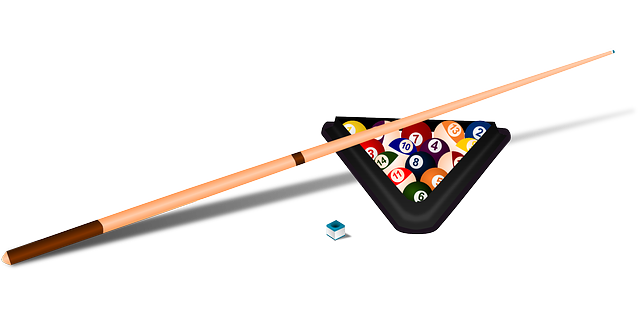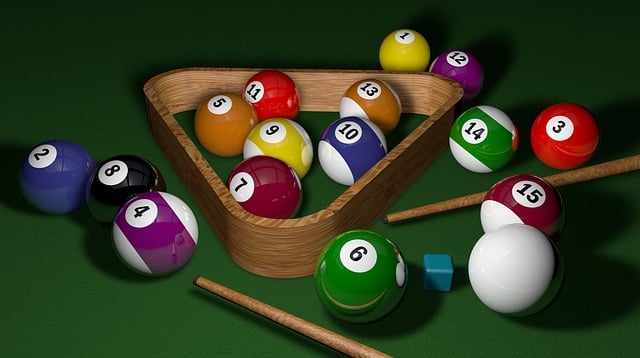Pool and snooker are both popular cue sports, but many players argue that pool is easier than snooker. In this article, we will explore the reasons behind this claim and examine the differences in rules, table size, and strategy that make pool a more accessible game for beginners. So, why exactly is pool easier than snooker? Let’s dive into the world of cues and find out!
Subtitle: The Simplicity of Pool in Comparison to Snooker
Subtitle: The Simplicity of Pool in Comparison to Snooker
When it comes to the world of cue sports, pool, billiards, and snooker are three popular games that require precision and skill. While each game has its own unique set of rules and techniques, there is a simplicity to pool that sets it apart from snooker.
Pool is often seen as the most accessible and beginner-friendly of the three games. It is played on a smaller table with only six pockets and a set of numbered balls. The objective is simple: to pocket all of your assigned balls (either solids or stripes) and then sink the black 8-ball to win the game.
In contrast, snooker is a more complex and strategic game. It is played on a larger table with narrower pockets and a much larger set of colored balls. The objective in snooker is to score more points than your opponent by potting red balls and then alternate between potting a colored ball and a red ball until all the balls have been cleared from the table.
The simplicity of pool lies in its straightforward rules and fewer variables. With fewer balls and pockets to consider, pool players can focus more on their technique and aim. This makes it easier for beginners to get a grasp of the game and start playing competitively in a shorter amount of time.
On the other hand, snooker requires not only accurate potting skills but also strategic thinking. Players need to plan ahead and carefully control the position of the cue ball to set up their next shot. The larger table and tighter pockets present a greater challenge, requiring players to have a higher level of precision and control.
Both pool and snooker have their own unique appeal and attract players of different skill levels. Some may prefer the simplicity and fast-paced nature of pool, while others enjoy the strategic depth and precision required in snooker. Ultimately, it comes down to personal preference and the level of dedication one is willing to invest in mastering the game.
In conclusion, while both pool and snooker are enjoyable and challenging cue sports, pool stands out for its simplicity in comparison to the more complex and strategic nature of snooker.
Differences in table size and pocket sizes
The first reason why pool is generally considered easier than snooker is due to the differences in table size and pocket sizes. In pool, the table is smaller, typically measuring 7 or 8 feet, whereas a snooker table is much larger, usually around 12 feet in length. This difference in size means that the distance between the balls, as well as the angles required for shots, is more manageable in pool.
Moreover, the pocket sizes in pool are also larger compared to snooker. Pool pockets are designed to be more forgiving, allowing players to make shots with greater ease. On the other hand, snooker pockets are significantly tighter, requiring more precise aiming and control. The larger pockets in pool give players a higher chance of sinking balls and scoring points, making it comparatively easier.
Variation in ball sizes and types
Another factor that contributes to the relative ease of pool compared to snooker is the variation in ball sizes and types used in the two games. Pool balls are typically larger and heavier than snooker balls. The larger size of pool balls makes them easier to control and strike accurately.
Additionally, pool uses only solids and stripes as the ball types, while snooker features a wide variety of colored balls. This simplicity in ball types makes it easier for players to focus on making shots and strategizing their gameplay in pool. In snooker, players must navigate through different colors and their point values, which adds complexity to the game.
Complexity of game rules and strategies
Lastly, pool is generally considered easier than snooker due to the complexity of game rules and strategies involved. Pool has relatively simple rules, where players aim to pocket their designated balls and then the black 8-ball to win the game. The straightforward nature of pool allows beginners to quickly grasp the basics and start playing.
In contrast, snooker has more intricate rules and strategies. Players must follow a specific sequence of potting red balls followed by colored ones, accumulating points. Additionally, controlling the cue ball’s position and planning ahead for future shots is crucial in snooker. The combination of complex rules and strategic thinking can make snooker more challenging for beginners compared to pool.
Overall, while both pool and snooker require skill, precision, and strategy, the aforementioned differences in table size, pocket sizes, ball types, and game rules contribute to the perception that pool is generally easier than snooker.
FAQ
What are some key differences between pool and snooker in terms of gameplay?
One key difference between pool and snooker is the number of balls used. In pool, there are typically 16 balls, including one cue ball and 15 object balls, while in snooker, there are 22 balls, including one cue ball, 15 red balls, and six colored balls.
Another difference is the scoring system. In pool, each ball has a predetermined value, and players aim to pot all their balls, followed by the black 8-ball, to win. In contrast, in snooker, players score points by potting red balls first, followed by colored balls, with the objective of achieving the highest total score.
The table size is also different. A standard pool table is smaller, usually measuring 7 or 8 feet, whereas a snooker table is much larger, commonly 12 feet long.
Finally, the cue sticks used in each game differ as well. In pool, players typically use a shorter and thicker cue stick, whereas in snooker, players use a longer and narrower cue stick.
Overall, these differences contribute to unique gameplay experiences in both pool and snooker.
What are the different strategies and techniques used in pool compared to snooker?
In pool, the strategies and techniques often revolve around pocketing balls strategically, controlling the cue ball position, and planning for subsequent shots. Players focus on selecting the best shot options, such as using bank shots or carom shots to pocket balls. The game requires less emphasis on safety plays and more on offensive shotmaking.
In snooker, the strategies and techniques are more complex. The primary objective is to score points by pocketing colored balls in a specific order. Players must plan multiple shots ahead, considering the position of object balls and the cue ball after each shot. Safety plays, involving defensive shots like snookering opponents or leaving difficult shots, play a significant role in snooker strategy.
Overall, while both pool and snooker require skill and precision, the strategies and techniques employed differ due to the distinct objectives and rules of each game.
How does the difficulty level in pool compare to that of snooker?
The difficulty level in snooker is generally considered to be higher than that of pool. Snooker has a larger table, smaller pockets, and requires more precise positioning and knowledge of complex shot selection strategies. Pool, on the other hand, tends to have simpler shot-making requirements and a wider range of game variations and styles. Overall, snooker demands a higher level of skill and precision compared to pool.
In conclusion, it is evident that pool is generally considered easier than snooker due to several factors. Firstly, the number of balls on the table in pool is significantly fewer than in snooker, making it simpler to navigate shots and position the cue ball. Additionally, the larger pockets and straighter angles in pool provide a greater chance for successful potting. Moreover, the rules and strategies involved in pool are generally straightforward and require less advanced skills compared to the complexities of snooker. However, it is important to note that both games require skill, precision, and practice to excel. Ultimately, the choice between pool and snooker depends on one’s personal preference and the desired level of challenge.






